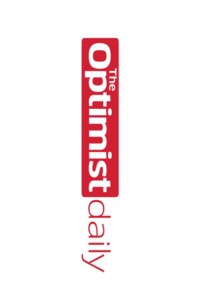“All that you touch you Change. All that you Change, Changes you. The only lasting truth is Change. God is Change.” – Octavia E. Butler
BY KRISTY JANSEN
We humans have had and will continue to have a profound effect on this planet and the biosphere. It’s no longer debatable and that’s OK. There is no going back or pretending we don’t have an effect. There’s no way to fence off what’s left of the “natural world” and hope it can recover and allow us to continue to thrive. We cannot isolate change. We have always been a part of the entire system, the world is interconnected and we are a part of that interconnectedness. To pretend we are otherwise is simply not going to help us chart a path to a better tomorrow. That must be our goal.
Going backwards is not an option. Even if we all returned tomorrow to a pre-industrial level of existence, the destabilized climate would continue to change, sea levels are rising, storms are becoming more violent, the Gulf Stream has weakened and winter is coming. We are already seeing polar vortices, summer heatwaves, drier deserts, and wetter prairies. Going forward is our only good choice and we have the chance to choose now.
Other people have spent their pandemic-induced captivity learning to bake wild sourdough bread, adopting puppies, or becoming citizen scientists, counting fireflies or discovering new stars. I, on the other hand, have spent much of my free time reading various dystopian novels. I understand this is a perverse habit for the editor of a positive news website like The Optimist Daily, but I find comfort in knowing all the possible outcomes, and understanding how we might get there, so that I can work on charting a different course. Along those lines, I have also found myself turning to science journalism on topics ranging from mental health to climate change – the personal to the planetary.
Climate journalist Elizabeth Kolbert won the Pulitzer Prize for her 2014 book of science, The Sixth Extinction: an  Unnatural History, which examined the causes and consequences of the previous five mass extinction events in Earth’s history, and also documented the profound effect that humanity’s actions have had, arguing we are having an impact every bit as large as the giant asteroid that wiped out the dinosaurs. In her latest book, Under a White Sky: the Nature of the Future, she examines the sometimes misguided efforts of modern man to control nature, how this has at times backfired, and how at this point, our best bet is probably to keep tinkering with it.
Unnatural History, which examined the causes and consequences of the previous five mass extinction events in Earth’s history, and also documented the profound effect that humanity’s actions have had, arguing we are having an impact every bit as large as the giant asteroid that wiped out the dinosaurs. In her latest book, Under a White Sky: the Nature of the Future, she examines the sometimes misguided efforts of modern man to control nature, how this has at times backfired, and how at this point, our best bet is probably to keep tinkering with it.
The book is a sometimes funny, sometimes profound look at how we have tried to control our physical world, often needing to fix unintended mess-ups only to muck things up in new and previously unimagined ways. It questions the 19th and 20th century notions of man as conqueror of natural systems we do not fully understand, as if we are separate from and unaffected by them. For example, in trying to rid our waterways of toxic chemicals used to control aquatic weeds prior, Asian carp were introduced into the Mississippi River system in the 1960s, only to become their own sort of toxic nuisance a couple of decades later. In a desperate effort to keep the invasive fish from infecting the Great Lakes water basin as well, engineers have devised a scheme that electrifies a section of the Chicago river.
Kolbert writes, “Only now, what’s got to be managed is not a nature that exists – or is imagined to exist – apart from the human. Instead, the new effort begins with a planet remade and spirals back on itself-not so much the control of nature as the control of the control of nature. First you reverse a river, then you electrify it.”
 The thing is, like the Asian carp in the Mississippi, humans have become so successful in changing the environment around us, that we’ve put our geologic time stamp on this epoch. We dub this time period, in which humans have been the primary factor affecting climate and the environment, the Anthropocene.
The thing is, like the Asian carp in the Mississippi, humans have become so successful in changing the environment around us, that we’ve put our geologic time stamp on this epoch. We dub this time period, in which humans have been the primary factor affecting climate and the environment, the Anthropocene.
The final third of the book addresses the destabilized climate, engagingly portrayed through her time spent among intrepid engineers, atmospheric scientists and entrepreneurs working to suck carbon dioxide out of the air.
The “white sky” in the title refers to the radical idea of injecting the stratosphere with sunlight-reflecting sulfate particles, creating a geoengineered haze that would cool down the planet’s surface, but also turn our blue skies white.
With witty descriptions, and brilliant insight, Kolbert’s book is a timely treatise on our sometimes fraught relationship with Nature, often defined in opposition to Man but at our own peril. We are as much subject to the realities of the biosphere we inhabit as the corals being driven to extinction as a by-product of human activity.
I sit in thoughtfulness and quiet, wondering how to share its message in a way that might promote understanding and hope, despite the rather grim predictions about how much human hubris has already been baked into our world system. As Kolbert points out, even after global emissions dropped a remarkable seventeen percent in April of 2020 due to coronavirus lock-downs, atmospheric carbon dioxide hit a record 417.1 ppm in May. 2020 also turned out to be the hottest year on record. Kolbert explains, “Declining emissions and rising atmospheric concentrations point to a stubborn fact about carbon dioxide: once it’s in the air, it stays there.”
Even if we do every thing we must do to curtail climate change, for example, decarbonize our energy, transportation and food systems as rapidly as possible, we are still going to need innovation and ingenuity to deal with the out of control effects that the Anthropocene has unleashed. Which brings me back to dystopian fiction.
My current literary obsession is Octavia E. Butler’s Earthseed series, a twin set of novels written in the 1990s set in the 2020s and 2030s in a fragmented, chaotic, broken-down United States. Butler’s world, imaginatively extrapolated from the headlines of the early 90s, eerily echos today’s 2020s. Climate collapse has caused massive societal and environmental disruption and refugees from coastal cities have moved inland and north as the climate has warmed. Among collapsing ecosystems, failed economies, and political demagoguery, many people turn to drugs or violence and cast blame on immigrants, minorities, and the destitute as scapegoats for the broken world.
the 2020s and 2030s in a fragmented, chaotic, broken-down United States. Butler’s world, imaginatively extrapolated from the headlines of the early 90s, eerily echos today’s 2020s. Climate collapse has caused massive societal and environmental disruption and refugees from coastal cities have moved inland and north as the climate has warmed. Among collapsing ecosystems, failed economies, and political demagoguery, many people turn to drugs or violence and cast blame on immigrants, minorities, and the destitute as scapegoats for the broken world.
Despite the apocalyptic premise however, it’s a beautiful work that is a testament to survival, resilience, community, and love. Yes, you read that right. Despite all the darkness, what I love about this book is that it is about growth.
Lauren Oya Olamina, the novel’s protagonist, is a young Black woman, the impoverished child of a Baptist preacher, who invents her own faith centered on Change as the only lasting truth. Olamina never gives into a sense of powerlessness, even when she is enslaved. She is an evangelist for the power of choosing one’s response to circumstance no matter how terrible or how easy.
She preaches that no matter what stability we wish for things are always changing, nothing ever stays the same. Might as well acknowledge that truth and seek to shape the change in a direction of your choosing.
As we approach the dates Butler chose to place her novels in, like Olamina, we are faced with a choice: do we continue to yearn for an imagined past that never really existed, or do we face the current moment with courage, acknowledge our part in the disorder, and walk with intention into the future.
I am cautiously optimistic that we can learn humility from the lessons Kolbert describes and harness the pragmatic determination of Olamina: that we will acknowledge our own truth of environmental catastrophe while using the immense research and resources at our disposal to turn this ship before we slam into the (melting) iceberg. As Butler eloquently puts it, “There is no end to what a living world will demand of you.”












